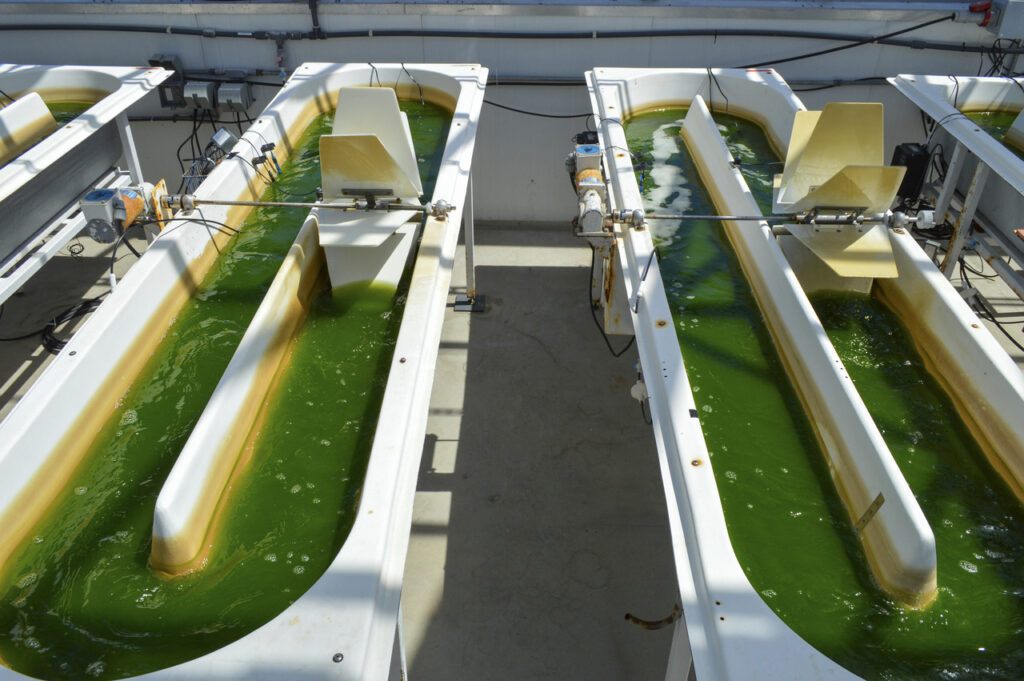US carrier United Airlines wants to turn microalgae into SAF through the first new investment of its recently announced UAV Sustainable Flight Fund: algae biofuel company Viridos.
The proposed $5 million investment by the airline will support the production of sustainable aviation fuel (SAF) made from algae, an abundant and scalable resource that can be grown and harvested without impacting the food supply chain.
Microalgae bioengineering
Viridos specializes in the bioengineering of microalgae and its proprietary technology accelerates the amount of oil that can produced from microalgae. This algae oil could then be used to scale the future production of sustainable aviation fuel (SAF).
SAF is an alternative to conventional jet fuel that, on a lifecycle basis, reduces greenhouse gas (GHG) emissions associated with air travel compared to conventional jet fuel alone.
[monsterinsights_popular_posts_inline]
SAF is made from used cooking oil and agricultural waste, and, in the future, could be made from other feedstocks, including household trash, forest waste, or algae.
To date, the major US airline has invested in the future production of over three billion gallons of SAF – the most of any airline in the world, based on publicly announced agreements.

“SAF is proven, scalable, and the best tool we have to reduce our carbon emissions from flying, but we face a significant shortage of available feedstock,” said United Airlines Ventures President Mike Leskinen.
“Viridos’ algae-based biofuel technology has the potential to help solve our supply problem without the need for farmland or other agricultural resources and marks our inaugural investment in our new cross-industry UAV Sustainable Flight Fund.”
About Viridos
Viridos, a biofuel company focused on decarbonizing industries, is leading the bioengineering of microalgae and has already achieved seven times the oil productivity compared to typical wild-type algae.
Based on current estimates, SAF created by Viridos’ algae oil is expected to have a 70% reduced carbon footprint on a lifecycle basis when compared to traditional jet fuel.
Viridos’ bioengineering technology combines several important and unique attributes contributing to better scalability and sustainability compared with traditional jet fuel production:
- Surface area oil productivities of Viridos algae far exceed any traditional oil crop, achieving high algae oil output on comparatively small areas.
- Viridos algae are grown in vessels containing seawater. This allows contained deployment in hot and dry locations without taxing scarce freshwater and arable land resources, while eliminating runoff.
- Viridos algae have extremely high oil contents facilitating downstream processing to algae oil.
- Viridos algae oil is a quality plant oil allowing existing bio-refineries to process the oil with high yield.
“By establishing production sites to grow Viridos-engineered microalgae in saltwater, we are creating the foundation for a biofuel future that moves away from fossil fuels without competing for precious resources such as fresh water and arable land,” said Oliver Fetzer, Viridos Chief Executive Officer.









